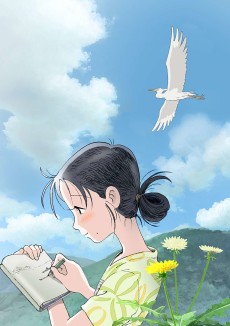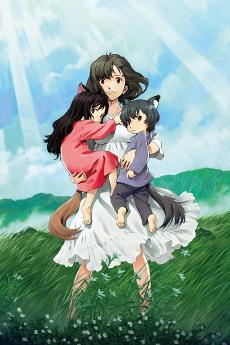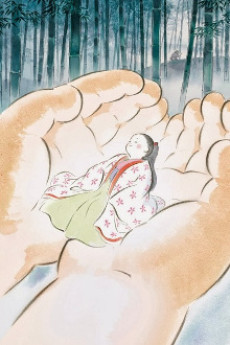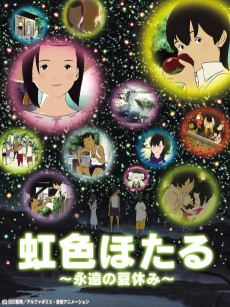OMOIDE PORO PORO
MOVIE
Dubbed
SOURCE
MANGA
RELEASE
July 20, 1991
LENGTH
118 min
DESCRIPTION
Taeko Okajima is a typical "office lady" in a big company in a big city. When she takes a sabbatical to the countryside in Yamagata Prefecture, the hometown of her brother-in-law, the journey recalled her memory of her 5th grade year. During her stay in Yamagata, she works hard and happily as a farmer and is surrounded by friendly relatives and villagers, bringing up more memories. Their hospitality makes her to reconsider her choice of life.
(Source: Anime News Network)
CAST
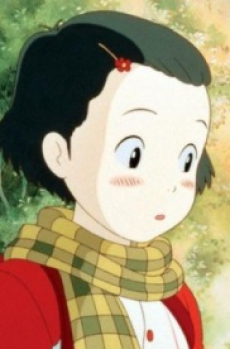
Taeko Okajima
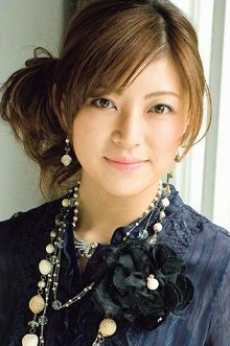
Youko Honna
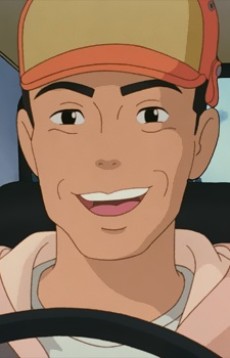
Toshio
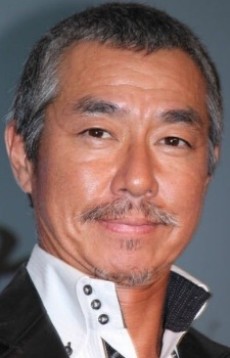
Toshirou Yanagiba
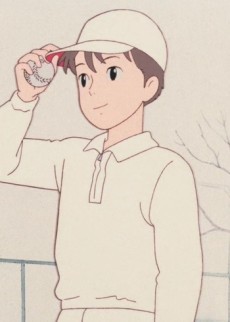
Shuuji Hirota
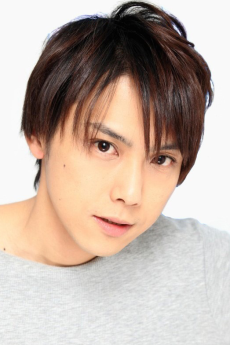
Yuuki Masuda
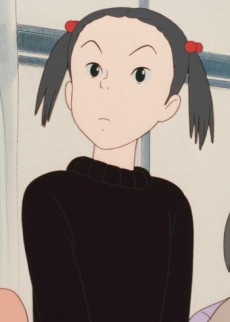
Tsuneko Tani
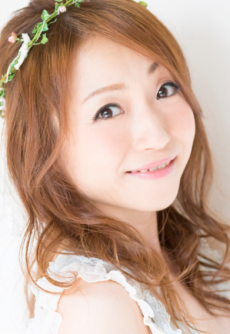
Mayumi Iizuka
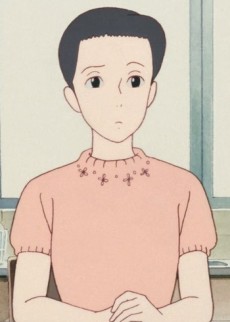
Taeko's Mother
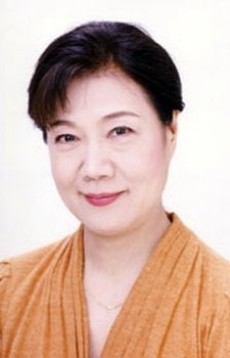
Michie Terada
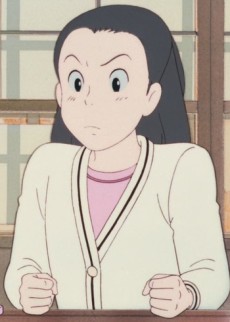
Yaeko Okajima

Yuki Minowa
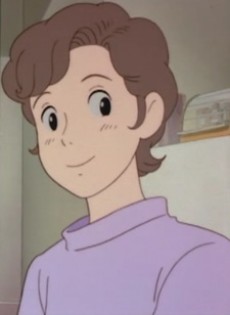
Nanako Okajima
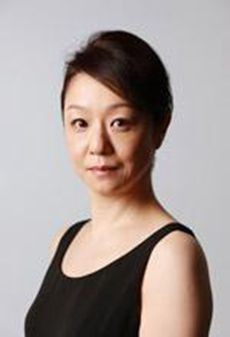
Yorie Yamashita
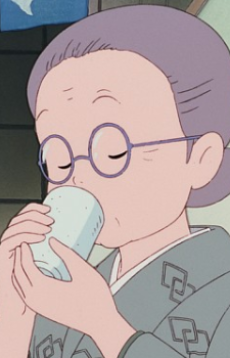
Taeko's Grandmother
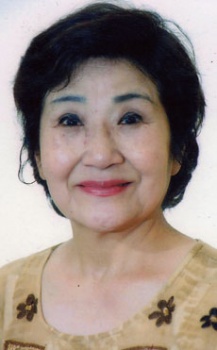
Chie Kitagawa
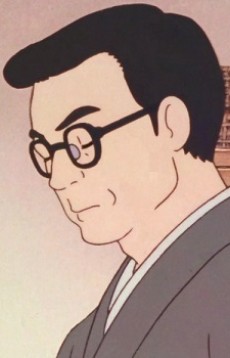
Taeko no Chichi
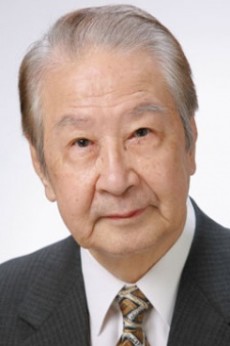
Masahiro Itou
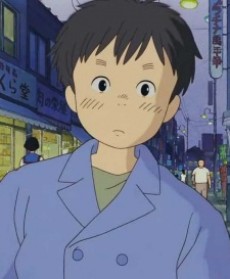
Abe
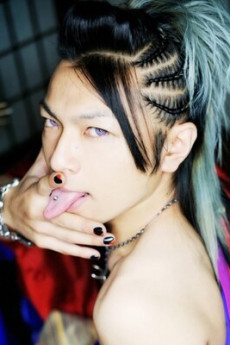
Hirozumi Sato
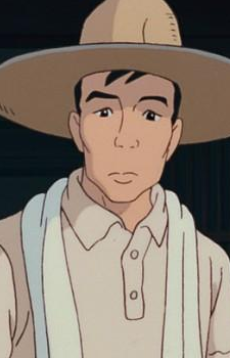
Kazuo

Kouji Gotou
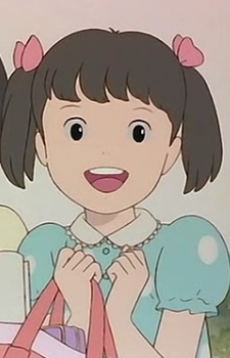
Aiko
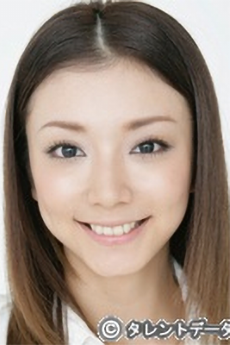
Mei Oshitani
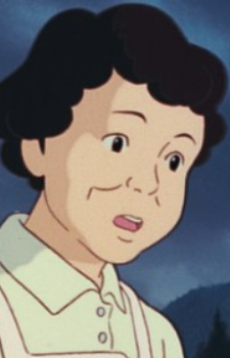
Kiyoko

Sachiko Ishikawa
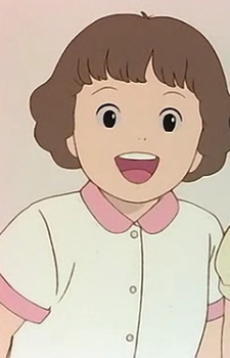
Toko

Megumi Komine
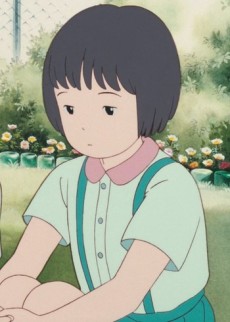
Rie

Yukiyo Takizawa
RELATED TO OMOIDE PORO PORO
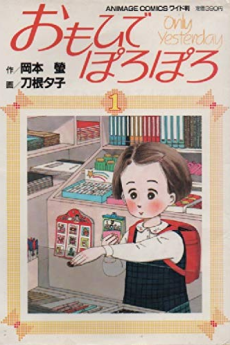 MANGA Slice of LifeOmoide Poro Poro
MANGA Slice of LifeOmoide Poro PoroREVIEWS

TheRealKyuubey
80/100There've been a lot of Ghibli movies about children growing up, but this might be the only one about adults growing up.Continue on AniListThere are two people with us at any given moment… There’s the person we currently are, who’s in charge of every decision we have to make as it comes to us, and there’s the person we remember being. This can be the person we were back in school, where we wistfully wish we’d applied ourselves harder; This can be the person we were last week, when we wish things had played out differently on that date or that big important meeting; This can be the person we were when we were much smaller, as we reflect on how that child could have ever become the adult we are now. For Taeko Okajima, that person is her fifth grade self, and it has been for a while. There was just something about that age, when she stood awkwardly on the cusp of womanhood, that she can’t help but relate to as she navigates the equally confusing path into her late twenties.
As a child growing up in Tokyo, Taeko had dreamed of visiting the countryside like most of her friends, but she didn’t have any family there, and her family didn’t really have the time or resources to uproot and vacation somewhere that they had no connection to. Now, fully grown, and with one of her older sisters married to a man from an extended farming family, Taeko has taken to using her vacations from work to visit her in-laws and work in their fields, which fills her with a satisfaction that she could never get before. This time, she’s going to be picking safflowers, a beautiful, thistle-like yellow crop that is used to make red dye and rouge. It’s not her first working trip, but with the charming Toshio picking her up, and with some of her strongest nostalgic recollections finally getting unexpected resolutions, will there be more to this vacation than she bargained for?
So, there’s this small animation studio that I only really started getting around to last week. It’s kind of obscure… You may have heard of it… Studio Ghibli? Yeah, I know, but trust me, it’s a pretty big deal in some small circles. All joking aside, I’m kind of ashamed that it took me this long to talk about some of their titles, but now that their most famous title is out of the way then I figured I should move on to my favorite movie of theirs… And surprisingly, it was NOT directed by their biggest name, Hayao Miyazaki. He produced it, but the screenwriting and directing was handled by Isao Takahata, the same man who directed one of their most renowned works, Grave of the Fireflies. He also did two of their less-beloved titles, Pom Poko and My Neighbors the Yamadas, but I haven’t seen either of those apparent bombs, so I’ll hold off on judgement. He actually passed away a few months ago, which really should have been bigger news, since his final film, The Tale of Princess Kaguya, was actually quite successful.
An astute viewer may notice right off the bat that this film was animated and drawn in two completely different styles. It takes place in two different time periods, one being Taeko’s childhood in the sixties, and the other being her adulthood in the eighties. The material taking place in the eighties has a more modern, realistic feel to it, with the image being crisp all around, both people and backgrounds being exquisitely and intricately detailed, down to the smallest safflower, and to the lines on an adult’s face(which, unfortunately, makes Taeko look 47 instead of 27 in some shots). The childhood material, in contrast, is a lot more cartoony, with character designs looking slightly more anime-ish(that’s vague, I know, but you’ll see what I mean when you watch it), with the more simplified features, and slightly more blurry backgrounds, and an over-all presentation that has a kind of haze to it. When characters from this period show up in the later period(which happens), they seem eerily out of place, which was of course intentional.
Thankfully, this difference in style doesn’t come with any drop-off in budget, as Only Yesterday is insanely well animated, especially when you consider that it’s such a normal, down to earth story with no real action scenes to speak of. There’s like one flying scene(because this is Ghibli, and those are pretty much contractually guaranteed), but the rest of the movie is just people interacting and doing various activities, like driving around, working, and talking. It really doesn’t need to be animated as fluidly or as gracefully as it is, but all of the extra motion in peoples’ movements and facial expressions makes the film feel a lot more immersive, as if you were actually there with them, and even when they’re doing the most mundane things imaginable, like visiting the baths or eating various fruits at the table, you want to be there with them. There were parts where I honestly suspected the use of rotoscoping, but that’s obviously not true… The Ghibli studio is known for their lavish budgets(most of the time), and Only Yesterday obviously benefited from this.
Being that this is a film and not a series, there isn’t much I can say about the soundtrack, but that’s a matter of quantity, and not of quality. For only being two hours long, the music in this movie is still beautiful, another one of Ghibli’s more consistent marks of excellence. There were multiple composers on this project, and in addition to the obvious few Japanese composers and their wonderful piano work, there were a few from eastern Europe, as well, with the Hungarian Gheorghe Zamfir bringing in a few joyous, uplifting flute melodies, and there were also a handful of festive tracks from Hungarian artist Marta Sebestyen, who also lends her haunting vocals at times. I’m not sure whether or not I should be surprised by this, because I’ve heard western songs being adopted as motifs in anime before, You Raise Me Up for Romeo X Juliet and Country Road from Whisper of the Heart being the most obvious examples, but Only Yesterday uses a cover Bette Midler’s The Rose, which honestly doesn’t fit the movie as well as it sounds, but the way it’s used does work emotionally, so I’ll let that slide. There’s one line in ther song… “It’s the heart afraid of dying that never truly lives…” That does match the climax kind of perfectly.
Before I start talking about the dub, there’s something I’d like to point out about the original sub, and that’s that much like the animation and aesthetic, the two time periods were also recorded differently. The childhood material was recorded in traditional ADR fashion, with the character’s lip flaps animated first so that the actors could dub their lines over it, but the adult material? That was done in Pre-lay, which is much more rare in Japanese productions. This is how western animation is recorded. They had the actors do their lines first, and then they animated over the performances, and if you’re wondering how this is such a huge difference, it’s because instead of people having to match animation, animation had to match people, and the result is far more realistic, as the actors could talk naturally, and the animation was able to capture their mannerisms and vocal quirks. This was another huge element in the disjointed feeling between a childhood memory and what’s happening in the here and now.
Quite a few people were scared that any dub of the movie would lose sight of this, and both sides of the story would be homogenized and just sound the same, but I’m happy to report that this is not the case. The people who dubbed this title knew damn well what they were doing, and while I can’t really put my finger on why, the performances on the pre-lay side of things sound far more grounded and down to earth than the ADR characters, who sound more like what you’d expect from an older anime dub… If I had to guess, it might be because while her childhood memories are populated mainly by actors who mostly each have a significant background in voice acting, the actors playing the two main roles in her adult life don’t have this benefit, having not done any voice work outside of video games prior to voicing for this film, and thus were a much better fit for what was supposed to be the more natural sounding side of the dub.
Who are these actors, you may ask? In typical Ghibli fashion, the lead roles aren’t played by career voice actors, but by predominantly Hollywood actors, and I’d dare to say that it works better here than it does in most of their films. Taeko is played by Daisy Ridley, whom the worst of you know as the Mary-Sue who ruined Star Wars with a pro-feminist SJW agenda. Screw all y’all, I loved her in the new Star Wars movies, and I love her in this dub, where she puts aside her British accent and manages to sound convincingly older than she really was at the time, being only 24 when voicing the 27 year old Taeko, and her voice actually sounds a lot deeper and wearier than she actually sounds in interviews. It’s honestly kinda hard to tell that it’s her without knowing ahead of time. I would call her the best performance in the dub, but surprisingly, I’d have to instead give that honor to Alison Fernandez, an American child actor who played her younger self in the flashbacks. She’s been acting since she was seven, and she’s built up a pretty solid resume since then… If you need a great example of this, she was in Logan.
Dev Patel, who rose to fame in Slumdog Millionaire and tried his damnedest to not suck in The Last Airbender, was NOT able to ditch his British accent for his role as the lovable Toshio, but that’s one of the things that become more tolerable when you find out that he just recently moved to the countryside to farm. His accent kinda sticks out, but his performance is good enough that you can suspend disbelief and take him seriously. Ashley Eckstein, whom you may know as Ahsoka from the recent Star Wars cartoons, plays one of Taeko’s older sisters, arguably the one who’s featured most prominently, and she was a good choice for it, as she and Alison have the right kind of tough love dynamic. Tara Strong has a small but substantial role as Naoko, a teenage member of Toshio’s family, and while there isn’t much for her to work with, she still makes it work. The only real issue I have with the dub is that the adult portion happens in the eighties, but there’s still some modern slang in there… At it’s worst, Taeko saying “Sho nuff” is a bit cringey, but it’s still a dub that shattered expectations.
So if you knew anything about this movie prior to 2016, you probably knew it as one of the mysterious two Ghibli movies that had somehow not been brought to america yet. These movies remained something of a mystery for any anime fan who wasn’t desperate enough to scrounge for a halfway decent fandub, if for no other reason than to figure out why they’d been left behind. now, for Ocean Waves, this was easy… It simply wasn’t very good, and unlike the worst of Ghibli’s output, it wasn’t interestingly bad either. It was just an unremarkable film that didn’t make a compelling case for existing. Only Yesterday, on the other hand, was much more successful, and had some actual acclaim behind it, so why was it forgotten? Well, from what I’ve heard, Disney got a bit shy over an extended flashback that dealt with puberty and children getting their periods. That may seem ridiculous to you now, but this was over twenty-five years ago. Going back just ten years ago, to the 2000s, and kids media couldn’t come within spitting distance of the topic of death, so it makes sense they’d have found this questionable back in the early nineties.
It did eventually get a theatrical release two years ago, alongside it’s cousin Ocean Waves, and if there’s any specific reason for it, I’d venture that there were two reasons; The first is the existence of the internet and the film’s rising cult popularity, and the second is that Only Yesterday was never really a children’s’ movie, and only in the last few years has the appeal of the animated medium to adults become more obvious to studios. This is a very adult movie, and I’m not referring to content… It’s technically safe, provided that a child has the proverbial parental guidance to explain the period-stuff, but I’m honestly not sure it would successfully hold a younger audiences’ interest, especially at it’s already taxing two hour run time. This is a decisively mature film, and it’s meant to be viewed by mature people, almost any of whom will find something relatably nostalgic in the deeply intimate narrative.
Of course, that’s not saying you have to be a child to find some parts of this movie boring. I certainly did, at least the first time around. It is, at it’s core, a slice of life movie, and a lot of what happens in it doesn’t initially seem to be important. There are several long, extensive conversations that seem to go nowhere, particularly in the adult portions of the story, and there are some scenes where they spend full minutes not even doing that. This isn’t the kind of storytelling westerners are used to… It doesn’t really follow any standard rules of story structure, very little ever comes back in any obvious way, and with it’s considerable run time, it can feel overstuffed at even the best of moments. It’s obvious that Takahata was going for a more realistic feeling story, as though it were a sequence of events that was more true to life than the average story, but that kind of thing rarely works in cinema, with the bulk of M Knight Shyamalan’s filmography being the perfect example of how this can go wrong… So how does Only Yesterday do it right?
I’ve seen this movie twice, and to be frank, I loved it SO much more the second time around. The first time, I WAS getting bored, I WAS wondering what all of the fluff was leading up to… And then, like a lot of other viewers(and in fact, like a lot of other REviewers), I was finally able to put it all together in the final minutes of the movie, right after the credits began to roll and The Rose started playing. In the final scene, everything clicked. I won’t spoil what happens, but to put it in vague terms, Taeko is given a choice to make, and it’s potentially one of the most important choices of her life, and the follow-through made for an immensely satisfying conclusion. This is a movie about growing up, which is common for Ghibli films, but where most of them are about children becoming adults, this one is about adults becoming adults, and that’s by no means a rare topic in Western media, but it’s still rare in anime, and it’s refreshing to see it done in this way. It’s a reminder that as adults, we have a kind of agency that we didn’t have as children, and there’s no reason we can’t pursue what were once impossible fantasies. We choose where we belong, we choose where we end up.
Of course, there is one glaring flaw in the film… As amazing a director as Isao Takahata was, he always had a habit of sneaking social commentary into his work, and while this may have worked out well in Grave of the Fireflies, which contained a message that the Japanese youth of the time desperately needed to hear, this one feels like extremely slanted propaganda in favor of people getting into traditional farming. Toshio will NOT shut the hell up about his feelings on the subject, how it’s a field of work that needs to be kept alive, and how important it is to be connected to nature, and while it’s easy to write off his zeal as the passion of one whose eyes were opened to it late in life(everyone who was raised on it is much more easy-going about it), it oversteps it’s bounds by constantly insinuating that country folk are all around better quality people than city folk, painting them as superior in worth and attitude, when this really isn’t fair. Both walks of life contain good people and shitty people, which can leave the film feeling heavy-handed at points. Thankfully, it’s not a big enough issue to sully the experience.
Only Yesterday is available from Gkids, on both DVD and Bluray format. The original 1982 manga of the same title by Hotaru Okamoto and Yuko Tone is not available stateside.
Only Yesterday is a wonderful film, and I’m so glad that it was able to reach our side of the world while Isao Takahata was still alive. It may not be his best film, as Grave of the Fireflies was obviously superior, and it may not be as an powerful experience for you as it was for me, but it’s still my personal favorite, not just of his movies, but of Studio Ghibli’s movies. It falters a bit from making an unconvincing first impression, and from it’s ham-fisted agenda, but it all comes together in the end, making for a much more engaging experience the second time around. Your mileage may vary, but I found myself crying at the end upon both of my viewings, and in a weird way, it was one of the factors that led me to deciding that I wanted to come back to writing reviews again. It’s stunningly directed and animated, making it easily Studio Ghibli’s most underrated films, although maybe not one of their over-all best, but that’s not saying much when you consider the amount of perfect and almost perfect films that make up their filmography. I give Only Yesterday an 8/10.

linajthol
60/100Studio Ghibli's take on adult decision-makingContinue on AniList(Discussed further in Episode 5 of the podcast I am in, Digitized Desperadoes. Here's a link: https://www.youtube.com/watch?v=BWmf9zO83y8 )
It’s an art film about a 27-year old, stuck on her past as a 10-year old, finding her way in life. It hits a lot of beats typical of these kinds of stories, with a feeling of spiritualism and meandering, while culminating at an emotional head, where she finally “chooses” the “better life.” This turns out to be problematic in execution.
There are two halves of this movie- the older Taeko, and the child Taeko. The film is told as older reminiscing about younger, but it feels… off. We see very little of older Taeko’s life beyond her working at the farm, and we exclusively see a specific age of the younger, 5th grade, 10 years old. This is both unrealistic and harmful, as some of the young segments end up feeling pointless or strange, even if they are meant to be wandering memories.
It is beautiful, no doubt. The motion and facial expression, for 1991, is impressive and charming, and the waterpainted backdrops are breathtaking. The music is mostly borrowed from Eastern European folk songs, which is odd, but it works well in context.
I can’t help but feel a level of disappointment that so much time is spent on her memories rather than her current life. I felt a disconnect- that the people were so thoroughly divorced from each other. There was absolutely nothing shown in those 17 years that rationalize or help the audience understand how she has gone from her traditional family life, her troubles with school, and her stubborn personality, to the mature self in the future. We see no dissatisfaction with city life, we exclusively hear the older self saying basic things like “I feel at home in the country.” I guess when the younger wanted to go on vacation she just wanted to go the country? Which is symbolic I guess? But it’s mentioned once and never again.
Overall, most of the younger segments feel unnecessary, and I much prefer the older segments. The best example of this is that at the end credits, there’s a beautiful montage of her reconsidering her life in the train, with her young self and friends watching in the back of her mind, but physically present. It’s beautiful, a perfect representation of growing up and moving on. But it’s only once. It should’ve been the entire film. Rather than constantly cut to jarring and unfitting flashbacks, why not make the distances between the two eras even closer? Why not make the whole film literally drift between past and present? It feels like a waste.
I think I get the film. I get the theme, I get some of the functions as both a period piece and a sort of older coming-of-age, but I don’t like it, and I feel like it’s not executed as well as it could be. 6/10.

FestivalsOfComf
70/100Only Yesterday is a slice of life film rooted in reflection and nostalgia that is realistic in its portrayal.Continue on AniListSetting expectations:
-
This review is being written under a subjective lens and mainly enjoyment.
-
The amount of spoilers will be as minimal as possible to none. I don’t talk more about the plot points except in spoiler text.
-
If you come to expect opinions from a very critical sense, sorry, but I’m not your guy as we may have different tastes.
-
I’ll try my best to explain what are the things that worked for me and what doesn’t in this review. Then you’ll hopefully be able to understand my point of view and maybe come to your own conclusion about what this movie will be like for you.
I preface because a lot of people online come to expect reviews to fit a mold of what they want which isn’t always realistic. For me, I just like to talk about anime I enjoy. And so this review is about such things. Sorry if this ain't what you're looking for.
Verdict
Omohide Poro Poro or Only Yesterday is a film released in Summer 1991 and produced by Studio Ghibli. It’s directed by Isao Takahata (Grave of the Fireflies, Akage no Anne, The Tale of Princess Kaguya). The story is adapted from Manga of the same name and the script was written by Isao Takahata.
The translation of the title is in reference to the phrase ‘it seems like only yesterday’ which means ‘used to say that something seems like it just happened’. In essence, this movie is a lot about reflection and reminiscing of the past. And this movie definitely does play on that nostalgia factor. This movie is rooted in nostalgia from the get-go. Its portrayal of the past and present is rooted in realism which helps exemplify said nostalgia. Well-done on their part for adapting these to the big-screen.
The animators for Only Yesterday have done a great job of showcasing character expressions and realistic movement, they’ve met the bar they set for themselves in terms of the standard of animation for Studio Ghibli. Nothing ever falters here and for a 90s film, it sure looks beautiful at some points. Movie’s audio is also second-to-none and the voice acting feels very realistic.
Your enjoyment will depend on how much the film resonates with you in terms of its character and stories.
For me, this film is a 7/10. It was entertaining and a nice ride. Personally, nothing too remarkable but it wasn’t bad.
Explaining my Rating Scale
I think the common mistake with ratings is that we all tend to judge and associate each rating on our own personal scale. When people see an average anime - they see that as a 5, some do 6 and others do 7. As you all know, we all have different tastes hence different rating scales. Hence why I’ll post my scale below.
My Personal Ratings Scale (Anime):
4 and below = I would've dropped this show already but made myself suffer through it for some reason. Regardless, this is the drop zone generally.
5 = This was really meh and I wouldn't take the time to rewatch.
6 = This was meh and I wouldn't watch it again unless I was forced to.
7 = It was okay and acceptable, it was good entertainment and you enjoyed the ride.
8 = This was a great story and you enjoyed the show/movie but it wasn't considered one of the best experiences. Just a great time overall!
9 = If you watched this show/movie for the first time, you'll love this a lot. It ain't life-changing but god damn you'll have one of the best experiences.
10 = This show resonated with me so hard - chills and intense emotional catharsis.
Background
I’ve actually picked up a blu-ray copy of this film a few years ago. Never had the time to watch it and never even seen it before but it was from Studio Ghibli plus I heard good praise for it. All I knew it was from the director of The Grave of Fireflies and it was like Studio Ghibli’s slice of life.
From their studio catalog, I’ve seen a good amount of Studio Ghibli films and Grave of the Fireflies. My expectations were quite leveled when watching, I liked Slice of Life a lot and so I was ready to have a nice chill time with the film.
Before making this review, I saw the blu-ray version and I’ve only watched the movie in Japanese Audio, English subtitles.
The Review
Now the review. I’ll be talking about the anime in the following categories:
1) Story / Plot / Characters
The story and characters are really grounded in reality. This can easily be adapted to live-action if they wanted to. It tries to talk a lot about rural vs. urban life but it’s more focused on the rural life and the childhood past. I think its portrayal of certain subjects is quite well-done, especially their childhood scenes. It felt like I was watching real children and real adults go about in the story. A lot of it is rooted in nostalgia and so if you’re wondering why so much focus on the past, well, that’s what happens to adults.
There have been instances where I was laughing and enjoying the nostalgic story moments because of how relatable it was. Then I would end up getting tired during the present-day stuff. In the end, I found myself feeling like I’m listening to an older parent speak about their childhood and listening to some peers at a bonfire talking about their childhood stories or what they’re doing today. This movie feels like a visually adapted podcast of a set of stories.
For those who haven’t been familiar with some technologies and references in the past, certain scenes may seem odd and considered dated to you. Regardless, it’s a nice look at how things were during that setting.
Other reviews noted how much propaganda it feels like, I was never bothered by its story/themes because well, it’s the characters' opinion on how they want to live their life. I don’t necessarily agree with what they’re saying but I also understand that this is how some people are in the real world with being pushy about a certain viewpoint which adds to how real their characters are.
Overall, expect a slice of life story where most of the meat is focused on the characters instead of the plot. I think each scene brings out more aspects of each character and really brings them more to life. There’s really no big plot and that’s not what it really aims to do, so don’t expect that.
2) Visuals / Animation
The movie was made in the early 90s and used 2D animation. You’ll see some beautiful painted backgrounds and the animators have really mastered their work in just about every way in the visual department. Animation is what you can expect from Studio Ghibli where there’s a lot of focus on how characters realistically move and how it expresses their personalities/characters.
3) Audio / Soundtrack / Voice Acting
The audio design was remarkable. Every single thing can be heard in each scene and felt realistic.
Soundtrack felt average but it fit the tone of a very relaxed/nostalgic feel for the scenes. It was serviceable with some unique tracks here and there.
Voice acting was really good in bringing the characters to life. There’s no exaggerated voices or the like, you’re hearing some real people expressed from the characters.
4) Overall
In terms of audience engagement, it’ll be up to you how much investment you have in the characters and how much you can relate. I believe this movie would be more appropriate as a set of OVAs or shorts. If you end up not being super engaged throughout the movie, I would take breaks in-between and come back later when you want a more laid-back feel. Sometimes you may not have the urge to watch a laid-back movie or slow-paced film, if so, come back when you do.
For those wanting a change of place from typical anime tropes and want an animated film that is grounded in reality, this is your type of film.
In the end, I found myself being entertained but also yawning at some points. I think I’ll revisit this film in the future again in a few years, maybe with more life experience, I’ll probably appreciate what it’s trying to say more as I can probably relate better. And if not, well, it was a nice ride.
Thanks for reading my review. :)
-
SIMILAR ANIMES YOU MAY LIKE
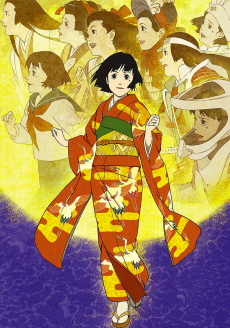 MOVIE DramaSennen Joyuu
MOVIE DramaSennen Joyuu ANIME DramaAkage no Anne
ANIME DramaAkage no Anne SPECIAL DramaUmi ga Kikoeru
SPECIAL DramaUmi ga Kikoeru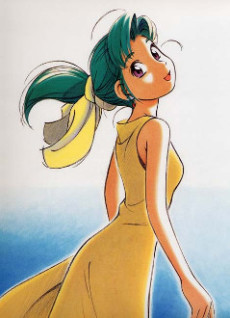 OVA Sci-FiYokohama Kaidashi Kikou
OVA Sci-FiYokohama Kaidashi Kikou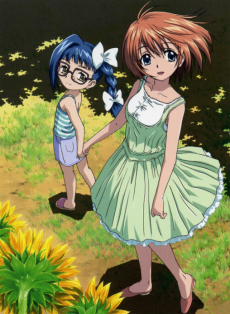 ANIME DramaAsatte no Houkou
ANIME DramaAsatte no Houkou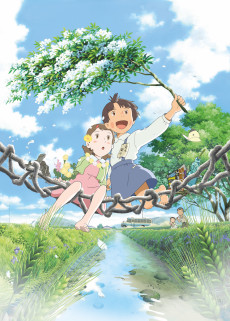 MOVIE AdventureMai Mai Shinko to Sennen no Mahou
MOVIE AdventureMai Mai Shinko to Sennen no Mahou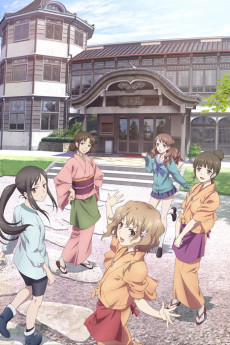 ANIME ComedyHanasaku Iroha
ANIME ComedyHanasaku Iroha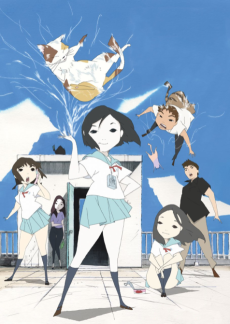 ANIME DramaFuujin Monogatari
ANIME DramaFuujin Monogatari
SCORE
- (3.65/5)
TRAILER
MORE INFO
Ended inJuly 20, 1991
Main Studio Studio Ghibli
Favorited by 1,148 Users


